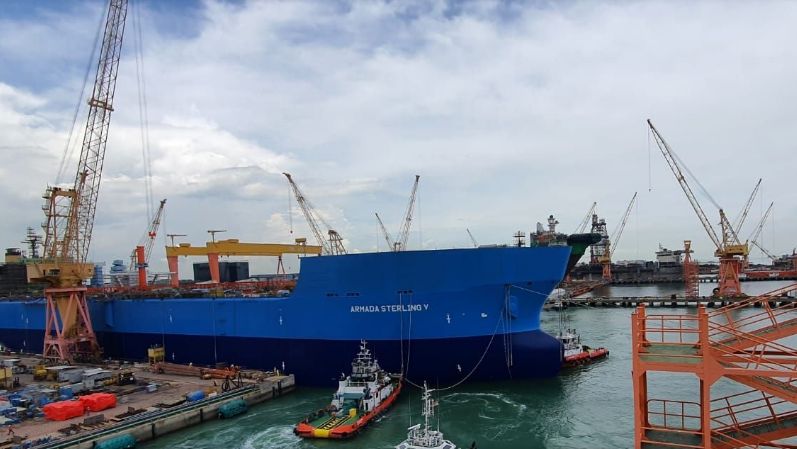The oil and gas sector stands as one of the world's primary fuel sources, with an undeniable impact on the global economy. Yet, beneath its influential facade, dedicated workers face critical challenges. Fortunately, the infusion of On-board Hospitality has transformed their work lives from arduous to compassionate and comfortable. Amidst the vast expanse of the open seas, a well-oiled machinery of hospitality excellence operates tirelessly to fuel the appetites of those braving the elements on offshore vessels, Floating Production Storage and Offloading (FPSO), accommodation barges, and platforms.
This industry has many unique challenges and risks due to operating in harsh environments, such as extreme weather conditions, deep waters, and remote locations. Providing facility management to this sector leads us to face several challenges due to its complex and hazardous nature. Operating on land or sea, these indispensable services offer not just meals but a vital respite from the crew's gruelling daily work.

One significant project involved servicing a crew of 125 seafarers on an FPSO vessel docked in Singapore, requiring meticulous planning and adherence to regulations, with managing logistics and non-contractual cabin supplies as major challenges. Planning for services in India presents various challenges, including compliance with ONGC regulations, workforce infusion, and diverse operational capabilities at different supply ports, transportation, and multinational crew meal preferences. These create a different scale of challenges if services are required out of India.
Navigating Challenges in Singapore
Singapore being very receptive to business propositions with other countries, offers a more favourable platform for ease of conducting business while keeping strict adherence to their laws, guidelines, and standards. Like the Indian resident, the crew do get their berths cleared for their addition to the overseas project. Adhering to Singapore's stringent food safety regulations and the Workplace Safety and Health Act is crucial, ensuring inspections and maintaining a safe on-board environment. Environmental regulations, such as MARPOL guidelines, play a vital role in responsible waste management, with a focus on minimizing single-use plastics. Effective management of vendor partners is essential for timely supply delivery, requiring clear communication and the capability to handle port formalities and specific culinary needs.
Ensuring Culinary Excellence
A pre-mobilisation galley's operational and safety audit ensures compliance with standards, paving the way for the catering crew to provision food services. Selected chefs curated for Continental, Asian cuisine, undergo rigorous medical examinations and safety training including Basic Offshore Safety Induction and Emergency Training (BOSIET) and Helicopter Underwater Escape Training (HUET) accredited by DG. Shipping, ensuring diverse menu offerings for the multinational crew.
Efficient Inventory and Laundry Management
The crew takes inventory of all supplies, while the partner agency prepares the accommodation and galley for pest-free occupancy. Streamlined storage and inventory management, barcoded supplies, and regular audits minimize wastage and uphold food safety standards by following the doctrine of First Expiry First Out (FEFO). The Camp boss plays a pivotal role in creating an efficient store with zero wastage and 100% stock availability. A major area of significance for crew comfort is the laundry. Our laundry team ensures that the crew get their work attire laundered and delivered safely and promptly. Within 24 hours of their collection. While the crew perform to the best of their capacity, it is the base office that is crucial in ensuring that the necessary support and advice is channelled to the on-board crew. The base office plays a crucial role in supporting the on-board crew and ensuring a value-for-money proposition for the client.
Conclusion
At the end of the day, with a content and satisfied client and a commercially viable proposition, it's like striking gold, fuelling one’s appetite for more such challenging ventures. Based on our extensive experience we know that facility management in the oil and gas industry requires a multidisciplinary approach to address these challenges effectively, strong leadership, and the ability to navigate the complex and dynamic nature of the industry while ensuring safety, compliance, and operational efficiency. It also involves leveraging technology, fostering collaboration among various stakeholders, and prioritizing safety, environmental sustainability, and operational efficiency.
Also Read : https://ffservices.co.in/blog/food-safety-secrets-best-practices-for-thriving-business.php
